How to Choose the Right Diesel Generator for Emergency Backup
Selecting the ideal backup diesel generator for your emergency power needs is a critical decision that can significantly impact your business continuity and operational resilience. Whether you're in the industrial, healthcare, or commercial sector, the right generator ensures uninterrupted power supply during outages, safeguarding your operations and assets. This comprehensive guide will walk you through the essential factors to consider when choosing a backup power solution, helping you make an informed decision that aligns with your specific requirements and budget constraints.
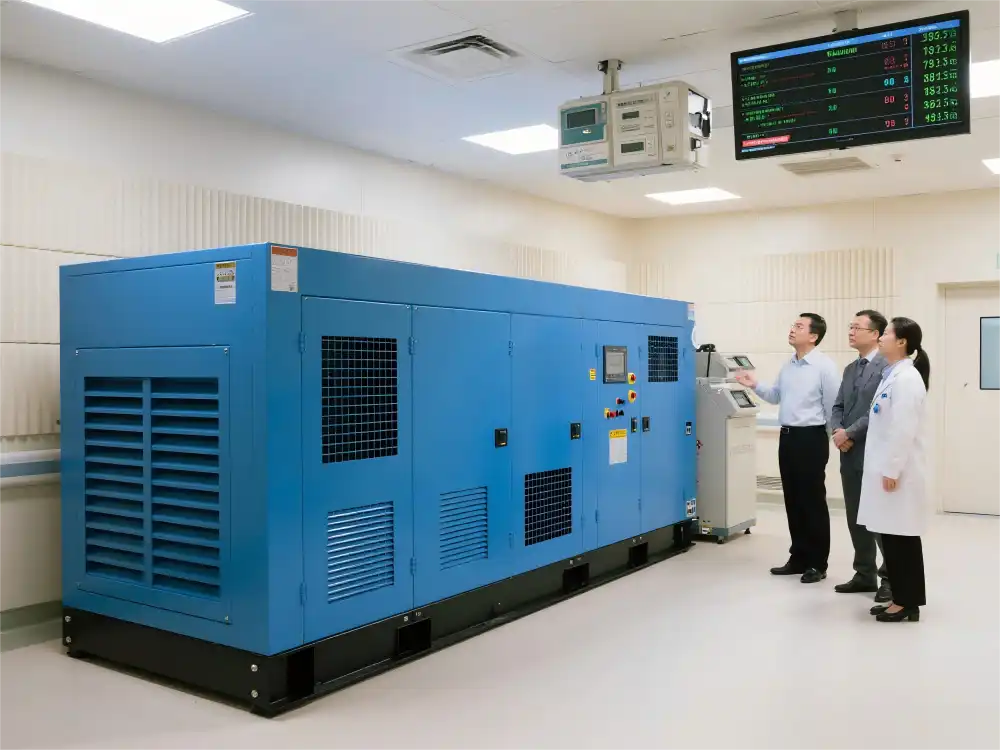
What Size Backup Diesel Generator Do You Need for Your Business?
Determining the correct size for your backup diesel generator is paramount to ensuring adequate power supply during emergencies while avoiding unnecessary costs associated with oversized units. The size of the generator you need depends on several factors, including your total power requirements, peak load demands, and future growth projections.
Calculating Your Power Requirements
To accurately assess your power needs, conduct a comprehensive audit of all electrical equipment and systems that require backup power. This includes lighting, HVAC systems, computers, machinery, and any critical infrastructure. Calculate both the running wattage and starting wattage for each item, as some equipment may require a surge of power when starting up.
Add up the total wattage requirements, then include a safety margin of 10-20% to account for unexpected loads or future expansions. This sum will give you a baseline for the generator capacity you need. Remember, it's generally better to slightly oversize your generator than to risk underperforming during critical moments.
Consider Load Management Strategies
Implementing load management techniques can help optimize your generator size and performance. By prioritizing essential equipment and staggering the startup of high-demand items, you can potentially reduce the overall size requirement of your backup power system. This approach not only can lead to cost savings but also improves the efficiency and longevity of your generator.
Key Factors to Consider When Selecting a Backup Diesel Generator
Choosing the right backup diesel generator involves more than just matching power output to your needs. Several crucial factors play a role in ensuring you select a generator that's reliable, efficient, and suitable for your specific application.
Fuel Efficiency and Tank Capacity
Fuel efficiency directly impacts operational costs and runtime during power outages. Look for generators with advanced engine management systems that optimize fuel consumption without compromising performance. Additionally, consider the fuel tank capacity in relation to your expected runtime requirements. A larger tank may be necessary for extended outages or remote locations where refueling might be challenging.
Noise Levels and Environmental Considerations
Generators can be noisy, which may be a concern, especially in urban or noise-sensitive environments. Evaluate the decibel ratings of potential generators and consider models with sound-attenuating enclosures if noise reduction is a priority. Also, assess the generator's emissions compliance to ensure it meets local environmental regulations and aligns with your sustainability goals.
Reliability and Maintenance Requirements
The reliability of your backup power system is crucial during emergencies. Research the reputation of different generator brands and models, focusing on their track record in similar applications. Consider factors such as mean time between failures (MTBF) and the availability of local service and support. Regular maintenance is essential for generator longevity and reliability, so evaluate the ease of access for routine checks and the availability of spare parts.
How to Compare Fuel Efficiency in Backup Diesel Generators
Fuel efficiency is a critical factor in the long-term cost-effectiveness of your backup diesel generator. Understanding how to compare fuel efficiency across different models can help you make an informed decision that balances performance with operational costs.
Understanding Fuel Consumption Rates
Fuel consumption rates are typically expressed in liters per hour (L/h) or gallons per hour (gal/h) at various load levels. When comparing generators, look at the fuel consumption rates at 25%, 50%, 75%, and 100% loads. This gives you a comprehensive view of how efficiently the generator operates across different power demands.
However, raw consumption rates don't tell the whole story. To make a fair comparison, calculate the specific fuel consumption, which is the amount of fuel used per kilowatt-hour of electricity produced (g/kWh or lb/kWh). This metric allows you to compare generators of different sizes on an equal footing.
Evaluating Advanced Fuel Management Systems
Modern diesel generators often come equipped with sophisticated fuel management systems that can significantly improve efficiency. These systems may include features such as:
- Electronic fuel injection for precise fuel delivery
- Turbocharging and aftercooling for improved combustion efficiency
- Variable speed technology that adjusts engine speed based on load demands
- Auto-start/stop functionality for optimal fuel use during intermittent loads
When comparing generators, inquire about these advanced features and their impact on fuel efficiency. While generators with these technologies may have a higher upfront cost, they can lead to substantial savings over the lifecycle of the equipment.
Jlmech, a leading manufacturer of diesel generators, offers a range of efficient and reliable backup power solutions. Their generators are designed with advanced fuel management systems that optimize consumption while maintaining robust performance. For businesses seeking high-efficiency backup power, Jlmech's generators provide an excellent balance of power output and fuel economy.
Considering Total Cost of Ownership
While fuel efficiency is important, it's crucial to consider the total cost of ownership when selecting a backup diesel generator. This includes initial purchase price, installation costs, fuel costs over the expected lifespan, maintenance expenses, and potential resale value. A more fuel-efficient generator may command a higher upfront price but could result in significant savings over time, especially in applications with frequent or extended use.
Jlmech's commitment to quality and efficiency is evident in their lineup of backup diesel generators. For instance, their 500kW/625kVA diesel generator exemplifies the balance between power and efficiency that modern businesses require. This model features:
- AC Output: 500kW/625kVA
- Rated AC Voltage: 400V
- Frequency: 50Hz
- Engine Speed: 1500 RPM
- Three-Phase output
- Available in Silent or Open Frame configurations
- Engine Options: 6/12/16 cylinder
- Water Cooling system for optimal performance
- Electric Starting for quick deployment
- Customization options available (OEM/ODM)
- Certifications: CE/Euro 5/EPA/CARB compliant
This powerful generator is engineered for demanding environments, featuring corrosion-resistant materials and advanced noise reduction technology (68 dB at 7m). It's particularly suited for applications such as hospitals, data centers, and mining sites, where continuous operation and high load capacity are essential. The generator's ability to quickly adjust output voltage and frequency in response to sudden load changes ensures a stable power supply with excellent transient response performance.
Jlmech's 500kW generator boasts optimized fuel consumption, reducing operational costs by up to 20% compared to standard models. This efficiency, combined with the company's global support network of 26 overseas offices providing 24/7 technical assistance and rapid spare parts delivery, makes it an attractive choice for businesses prioritizing both performance and long-term cost-effectiveness in their backup power solutions.
Conclusion
Choosing the right backup diesel generator for your emergency power needs is a critical decision that requires careful consideration of various factors, including power requirements, fuel efficiency, reliability, and total cost of ownership. By thoroughly assessing your specific needs and evaluating generators based on the criteria discussed in this guide, you can select a backup power solution that provides reliable performance and peace of mind during critical situations.
For businesses seeking a robust, efficient, and customizable backup power solution, Jlmech offers a comprehensive range of diesel generators designed to meet diverse industrial and commercial needs. With over 29 years of experience in power solutions, ISO 9001/14001 certifications, and a global network of support offices, Jlmech stands ready to provide tailored backup power solutions that ensure operational continuity and efficiency.
Ready to secure your business with a reliable backup power system? Contact Jlmech today at skala@whjlmech.com to discuss your specific requirements and find the perfect backup diesel generator for your needs. Our team of experts is prepared to guide you through the selection process, ensuring you get a power solution that aligns with your operational demands and budget constraints.
References
- Smith, J. (2023). "Emergency Power Systems: A Comprehensive Guide for Businesses." Power Engineering Journal, 45(3), 78-92.
- Brown, A. et al. (2022). "Optimizing Diesel Generator Efficiency in Industrial Applications." Energy Conversion and Management, 215, 112876.
- Environmental Protection Agency. (2023). "Emissions Standards for Stationary Diesel Engines." EPA Technical Report 2023-01.
- Johnson, R. (2021). "Fuel Efficiency Advancements in Modern Diesel Generators." International Journal of Energy Research, 45(9), 13562-13578.
- National Fire Protection Association. (2022). "NFPA 110: Standard for Emergency and Standby Power Systems." NFPA Publications.
- Lee, S. and Park, K. (2023). "Load Management Strategies for Optimal Sizing of Backup Power Systems." IEEE Transactions on Power Systems, 38(4), 3215-3227.
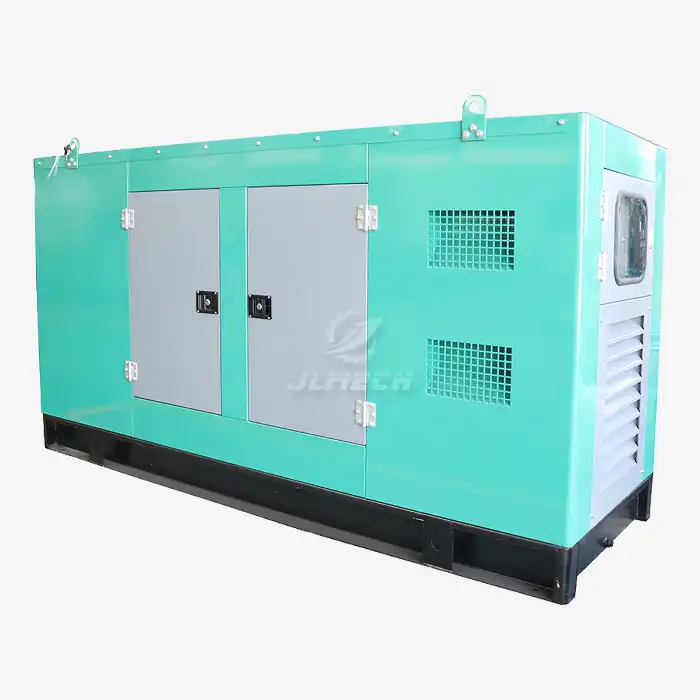 VIEW MOREConstruction diesel set
VIEW MOREConstruction diesel set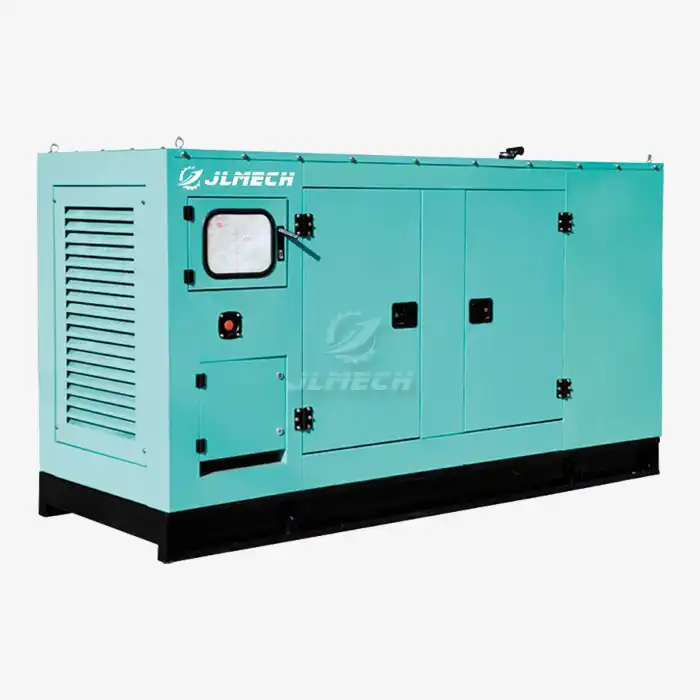 VIEW MORESuper Silent Type Diesel Generator
VIEW MORESuper Silent Type Diesel Generator VIEW MOREAwning Type Diesel Generator
VIEW MOREAwning Type Diesel Generator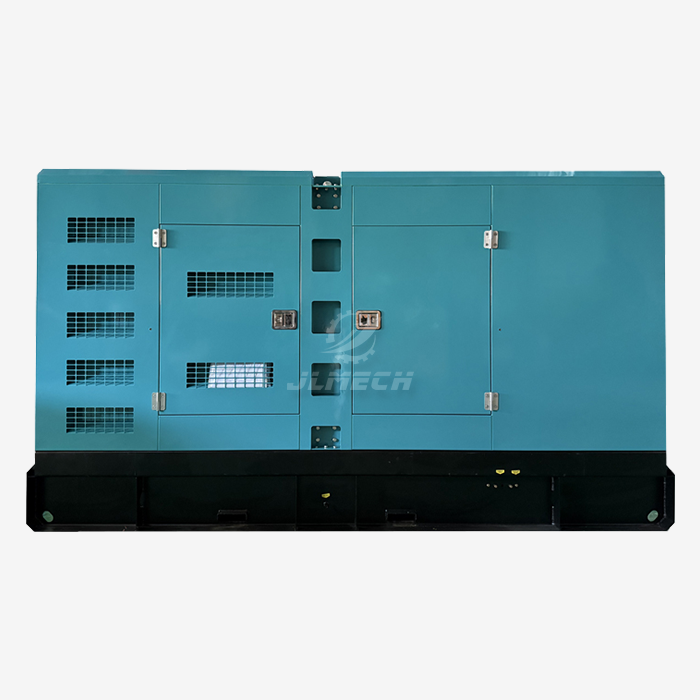 VIEW MORE200kva perkins diesel generator
VIEW MORE200kva perkins diesel generator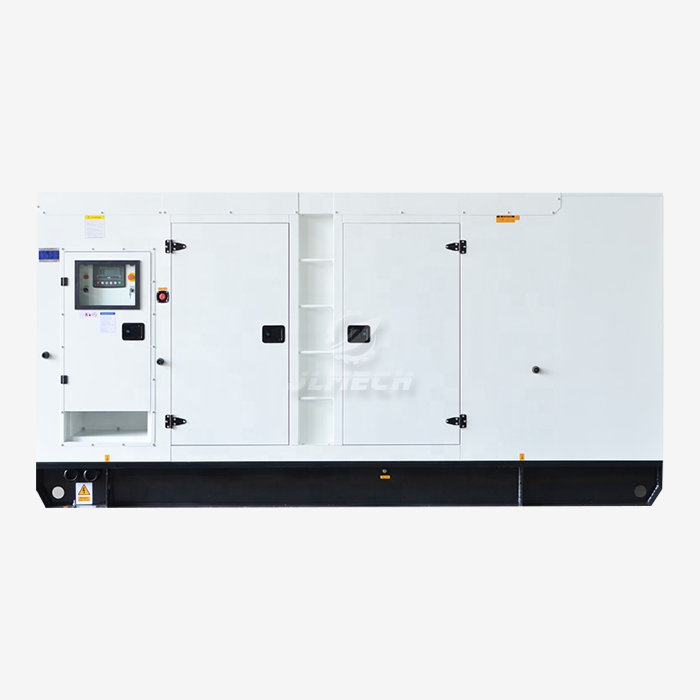 VIEW MOREgenerator mitsubishi 1500 kva
VIEW MOREgenerator mitsubishi 1500 kva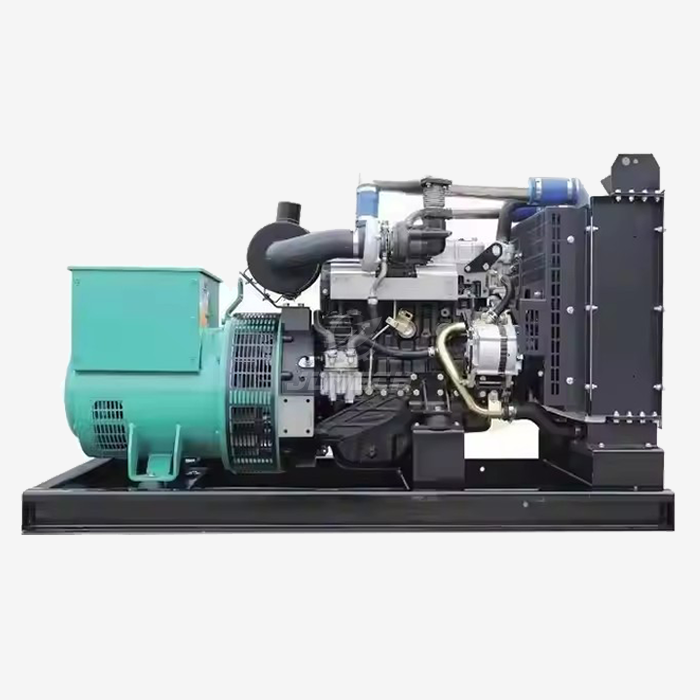 VIEW MOREkubota diesel generator 35kw
VIEW MOREkubota diesel generator 35kw VIEW MOREfilter element of air filter
VIEW MOREfilter element of air filter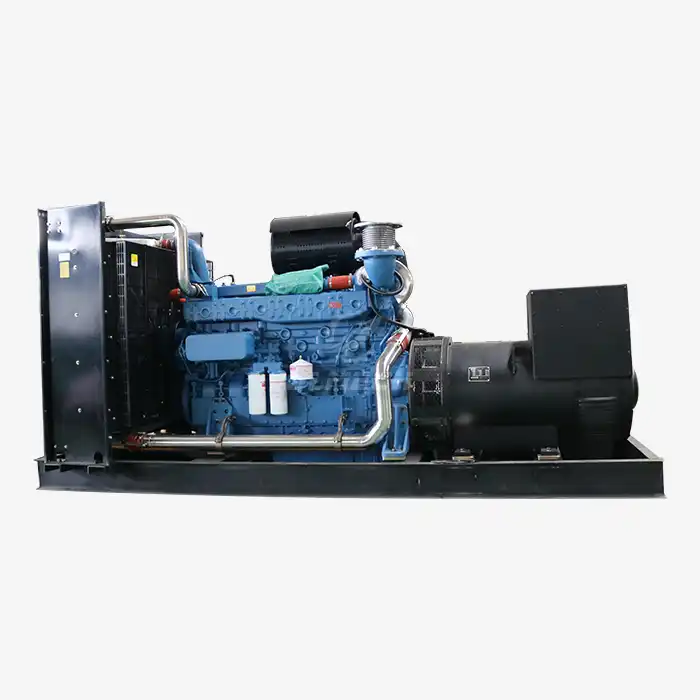 VIEW MOREdiesel generator yuchai 80kva
VIEW MOREdiesel generator yuchai 80kva



